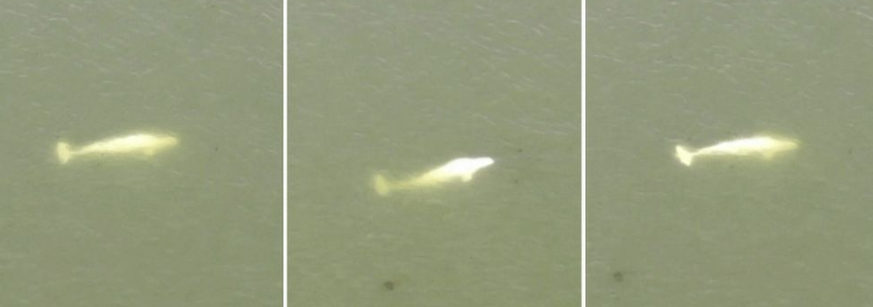
After the beluga was spotted on Wednesday, rescue services monitored the animal with drones, but the whale barely moved on Thursday, drifting between two locks on the river, Eure department official Isabelle Dorliat-Pouzet said.
Drone footage showed the whale swimming slowly, its white silhouette just below the waterline and coming up to breathe.
It was unclear why the whale had strayed so far from its natural habitat, dozens of kilometres up a busy waterway and nearly halfway to Paris, past the port of Rouen.
"The challenge now will be to help feed it, and try to accompany it towards the ocean," Lamya Essemlali, the head of environmental group Sea Shepherd France, said.
Taking the beluga out of the water was out of the question as that would be risky for it, she said.
The all-white belugas normally live in Arctic and sub-Arctic oceans, although they do sometimes stray into more southern waters and river estuaries and can temporarily survive in freshwater.
The local fire department, which is in charge of monitoring the whale, said its first priority was to evaluate its health before considering whether to intervene or not.
In late May, a gravely ill orca which became separated from its pod and swam dozens of miles up the Seine died of natural causes after attempts to guide it back to sea failed.
A month later, another whale, believed to be a 10-metre-long (33 foot) Minke whale, was spotted in the Seine.
In September 2018, a beluga whale was spotted in the River Thames near Gravesend for a few days, in what was then the most southerly sighting of a beluga on British shores.












